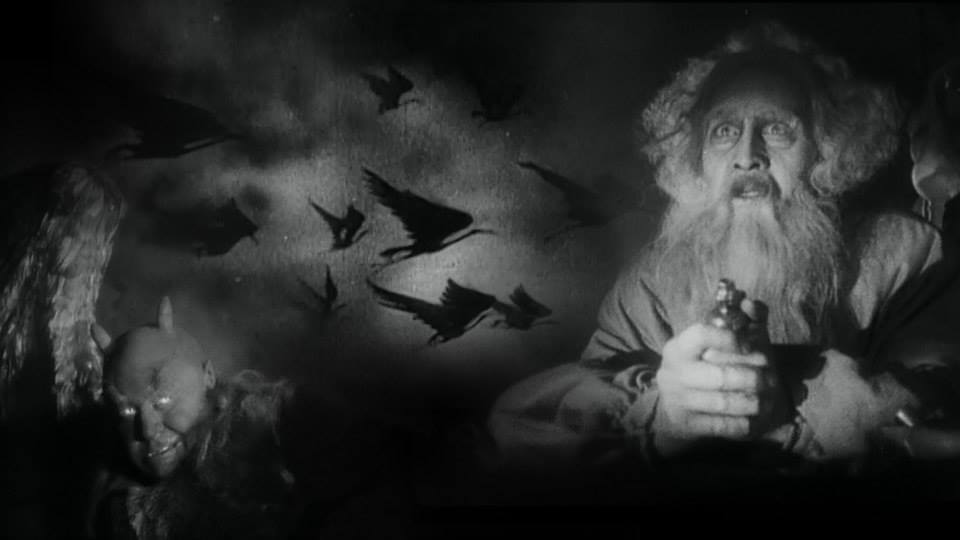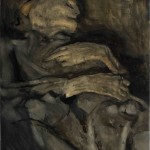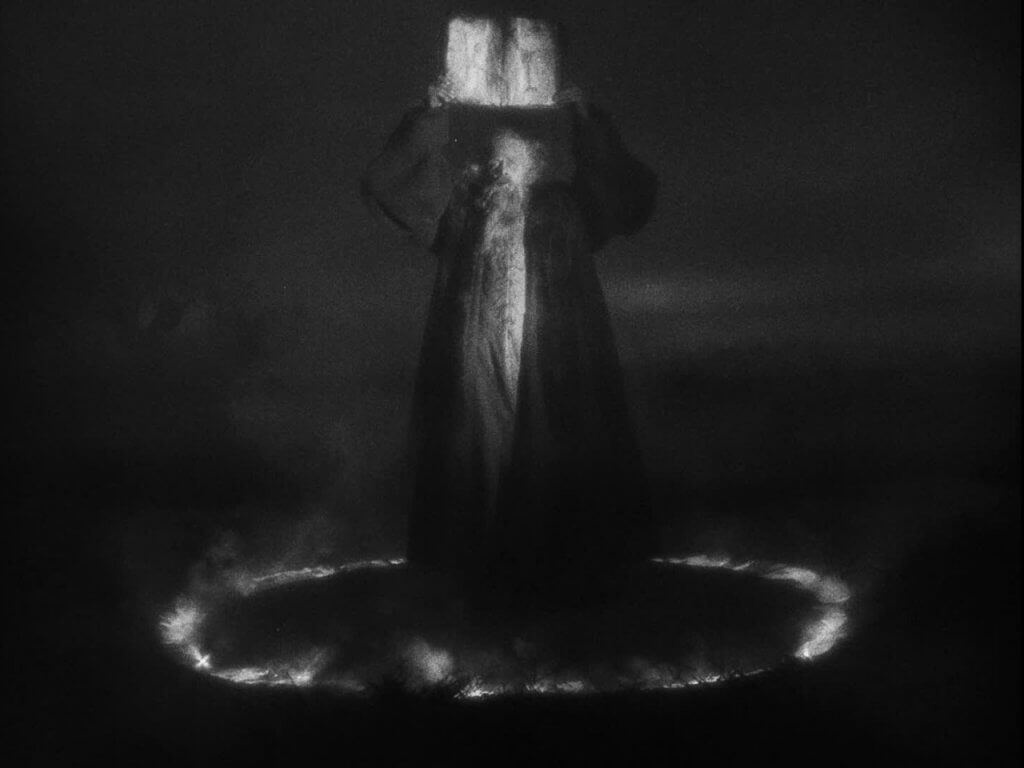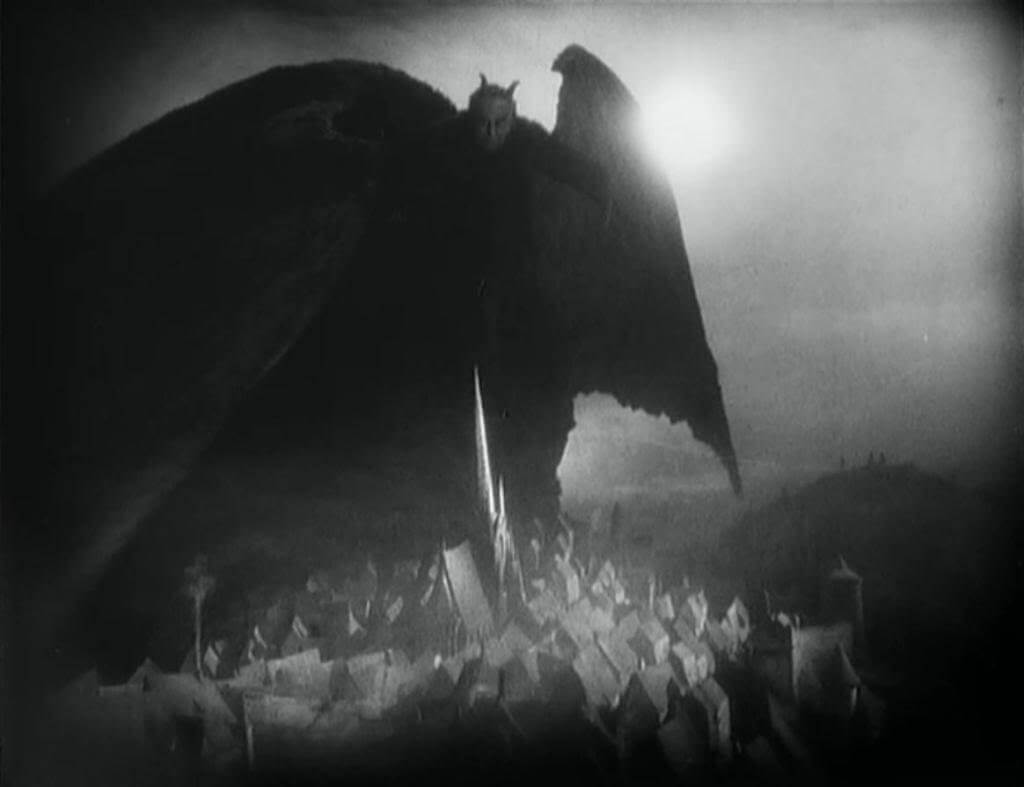News and Articles › Gripping Film Moments
Kitsch and myth are both historical attempts to live outside history.
— Thomas Elsaesser, film historian
Top list
View the entire list
If kitsch is the defensive attribute given to films by those who rightly fear the cinema for destroying the “authentic” in art, the cinema can wear it as a badge – if not of honour then perhaps of its energetically cynical courage.
– Thomas Elsaesser, Weimar Cinema and After
When F. W. Murnau’s Faust (1926) came out in German cinemas it was harshly received by the critics who mocked the sentimentalistic approach to the story and condemned the film as a “kitsch travesty.”
It is important to note that the intellectual establishment of Central-Europe in the 1920s saw Hollywood as vulgar and feared that movies produced on their own continent would follow in the same audience-friendly direction.
Which they did.
But take nothing for granted.
European films have to this day – despite the influence from America – had a touch of “authenticity.”
One of the things that have astonished me is that while Hollywood films advertise themselves with their technical and dramatic qualities – their collegues overseas brag about nominations and prizes.
If it were not for Hollywood we would certainly witness another visual medium get conquered by the Germanistic art world.
Read more about this in my article Why the Art World Failed and Hollywood Succeeded.
Faust (1926) “begins and ends with images of religious kitsch” as pointed out by a film journalist from Bright Lights and sees its peak at the ending which is extremely melodramatic.
For those who do not know the preceding story:
The scholar and wise man of the city – Heinrich Faust – calls upon the devil’s deputy in desperation following the breakout of a plague. After publicly denouncing the crucifix he is forced to escape his fellow citizens pleading Mephistopheles to give him back his youth.
Mephisto takes Faust through time and all the way rearward to his carefree teenage years in love with Gretchen.
After loosing her innocence to our hero – Faust ends up in a sword fight with her brother who is stabbed to death by Mephisto.
Gretchen is punished to death and Faust comes to her rescue. Mephisto breaks the spell and Faust is transformed back into an old man. He throws himself onto the fire and Gretchen embraces him has they both depart.
Eventhough the mid-part drags out – watch the beginning and the end of the film! I have never seen film noir visualized more beautifully.
I heard somewhere that Murnau and the cinematagropher Carl Hoffmann wanted to create a visual look with an untraceable light source and that they had studied classical painting to achieve this.
Goethe created the story – Murnau visualized it – and Timothy Brock crowned the masterpiece with his excellent score from 1995.
But is it that simple?
Structural qualities
When I read Dr. Faustus by Christopher Marlowe I was surprised to see a very different rendition of the story. In his play – Faust willingly “sells his soul” to the devil in order to learn witchcraft – finding himself unsatisfied with the meaning of existence.
Not heroic at all.
Believe me – it was a shocker when I found out that Goethe’s version had almost the exact same narrative!
So what does that mean?
It means that the script writers Gerhart Hauptmann and Hans Kyser has played around with Goethe’s poem to come up with a completely different storyline – supporting an empathic portrayal of Faust in Murnau’s film from 1926.
The lead role is now an isolated old man who strives to save his fellow citizens that are dying from the plague.
Despite his knowledge of medecine and words from the holy scriptures – he is unable to do anything about the problem.
He finds himself forced to reach out to the devil to heal the sick with magic.
This is yet again an excellent example of a primal foundation for a story which inverses the existential issues that Faust faces in classical literature.
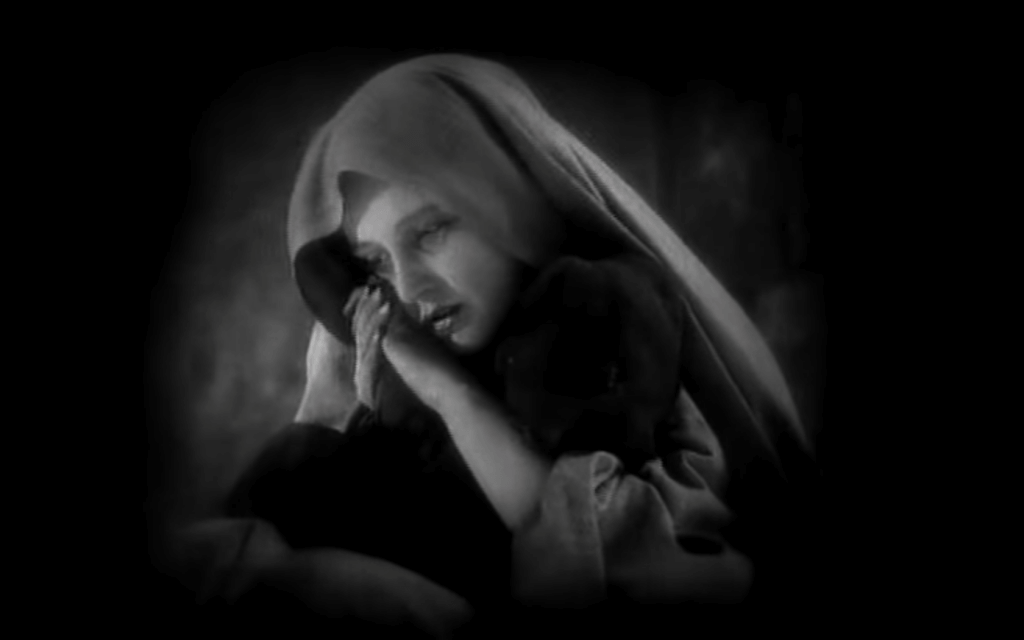
Still from Faust (1926): The outcast Gretchen is warming her dying child like a Madonna figure in the winter storm.
A balance between ‘classicism and kitsch’ not a ‘Gesamtkunstverk’ (true art)
– Fritz Göttler
On the whole Faust presents philosophical and moral issues. The Devil seemingly wins the bet against the Angel because he proves that even the smartest man on earth can be corrupted. Ultimately Faust is accepted into heaven as the Angel concludes that he acted in the name of love.
Published on Sunday, October 30th, 2016
